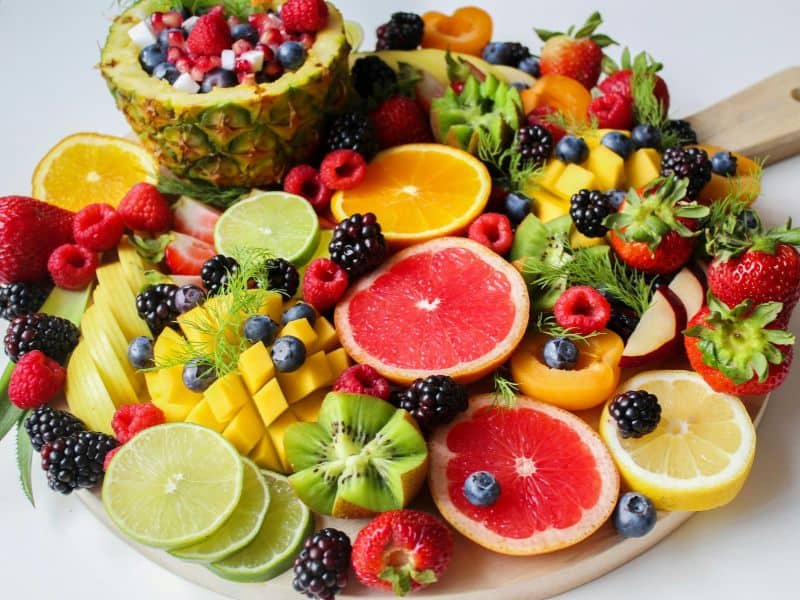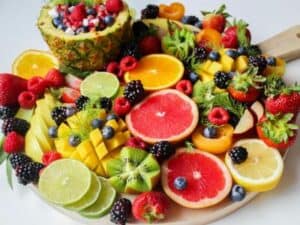
25 Jun How Seasonal Fruits Can Benefit (or Harm) Your Teeth
How Seasonal Fruits Can Benefit (or Harm) Your Teeth
When we think about seasonal fruits, we usually focus on flavor, freshness, and nutrition. But did you know that these same fruits can directly impact your oral health—for better or worse? Depending on the fruit and how it’s consumed, it could either strengthen your smile or slowly damage your enamel. This article explores how seasonal fruits interact with your teeth and what you can do to enjoy them safely.
Why Oral Health Depends on What You Eat
You’ve heard it before: “You are what you eat.” Nowhere is that more true than inside your mouth. Diet is a major contributor to dental health. The types of food you consume affect your saliva production, enamel strength, and gum condition.
Acidic, sugary, or sticky foods can promote plaque buildup, while fibrous fruits and water-rich produce can help clean your teeth naturally. Understanding these dynamics gives you the power to make smart choices.

The Role of Seasonal Fruits in Your Diet
What Makes Fruits “Seasonal”?
Seasonal fruits are those harvested at their peak during specific times of the year. They’re often fresher, tastier, and more nutritious than out-of-season produce shipped from afar. Think sweet strawberries in spring, juicy watermelon in summer, crisp apples in fall, and vibrant citrus in winter.
Nutrient Density in Fresh Produce
Seasonal fruits often have higher nutrient content. When fruits are picked at their peak and eaten shortly after harvesting, they retain more vitamins and minerals. These nutrients—like vitamin C, potassium, and antioxidants—support overall health, including oral wellness.
Benefits of Seasonal Fruits for Your Teeth
Boosting Saliva Production
Chewing crunchy fruits like apples and pears increases saliva flow, which naturally rinses your teeth and neutralizes harmful acids. More saliva means fewer bacteria and less decay.
Essential Vitamins for Strong Gums
Vitamin C helps maintain strong gums and prevent inflammation, while calcium strengthens tooth enamel. Many seasonal fruits deliver these in abundance, making them a perfect complement to brushing and flossing.
Top 5 Seasonal Fruits That Help Your Teeth
1. Apples
Apples act like a natural toothbrush. Their fibrous texture helps scrub away food particles and plaque. They also increase saliva production, which keeps your mouth clean.
Tip: Choose crisp, raw apples and rinse your mouth afterward.
2. Strawberries
Strawberries contain malic acid—a natural enamel whitener—and vitamin C, which supports gum health. They can brighten your smile while nourishing it.
Note: Rinse after eating, as the acid can still wear enamel.
3. Kiwis
Packed with vitamin C and antioxidants, kiwis help repair gum tissue and fight inflammation. Just one kiwi can exceed your daily vitamin C needs.
4. Oranges (in moderation)
Oranges provide vitamin C and hydration, but they’re also acidic. The key is moderation and proper timing—don’t brush your teeth right after eating them.
5. Watermelon
Watermelon is more than a refreshing treat. Its high water content helps wash away debris and bacteria, and it contains lycopene, an antioxidant that may reduce gum disease.

Seasonal Fruits That Can Harm Your Teeth
While many fruits support dental health, others can do harm if not eaten with care.
1. Pineapple
Pineapples are high in natural acids that can weaken tooth enamel. Their sweetness also feeds bacteria.
Tip: Pair with a protein or rinse afterward.
2. Grapefruit
Like pineapple, grapefruit is acidic and can erode enamel over time. It’s best enjoyed with other non-acidic foods to neutralize its effects.
3. Dried Fruits (e.g., Raisins)
Dried fruits are sticky and full of concentrated sugar. They cling to your teeth and can lead to decay faster than fresh fruits.
Suggestion: Brush and floss carefully after eating dried fruits.
Tips for Enjoying Fruits Without Damaging Your Teeth
To get the health benefits of fruits without risking dental damage, follow these guidelines:
Rinse After Eating
Rinsing your mouth with water can wash away acids and sugars before they settle on your teeth.
Use a Straw (for Juices)
If you enjoy fruit juices, drink through a straw to minimize contact with your teeth.
Don’t Brush Immediately
Wait 30 minutes after eating acidic fruits before brushing to avoid damaging softened enamel.
Eat with Meals
Eating fruit as part of a balanced meal reduces its impact on your teeth by buffering acids with other foods.
FAQs About Fruits and Dental Health
Can fruits cause cavities?
Yes, certain fruits can contribute to cavities, especially those high in natural sugars and acids—like oranges, pineapples, or grapes. These sugars feed harmful bacteria in the mouth, leading to acid production that erodes enamel. However, this doesn’t mean you should avoid fruits altogether. When eaten in moderation and paired with good oral hygiene habits—like rinsing after eating and brushing twice daily—fruits can remain a healthy and tooth-friendly part of your diet. Prioritize fresh, whole fruits over juices or dried varieties for the best balance of nutrition and dental health.
Are fruit smoothies bad for your teeth?
Fruit smoothies can be a double-edged sword. While they’re packed with vitamins and antioxidants, they also expose your teeth to high amounts of sugar and acid in a liquid form. When sipped slowly or frequently throughout the day, they bathe your teeth in these substances, increasing the risk of enamel erosion and cavities. To minimize harm, drink smoothies in one sitting, use a straw to reduce direct contact with teeth, and rinse your mouth with water afterward. Adding leafy greens or dairy (like yogurt or milk) to smoothies can also help buffer the acids.
What fruits whiten teeth naturally?
Strawberries and apples are commonly cited for their mild whitening properties. Strawberries contain malic acid, which can help remove surface stains when used sparingly. Apples, on the other hand, have a fibrous texture that helps scrub the teeth during chewing, offering a gentle cleansing effect. However, these effects are subtle and won’t replace professional whitening treatments. Overuse of acidic fruits for whitening can actually weaken enamel, so moderation and proper rinsing are key if you’re using fruits for this purpose.
Is it better to eat fruit raw or cooked for dental health?
Generally, raw fruits are better for your teeth than cooked or processed ones. Raw fruits retain more fiber, which stimulates chewing and increases saliva production—nature’s way of washing away food particles and neutralizing acids. Cooking fruits often breaks down the fiber and concentrates their sugars, making them stickier and potentially more damaging to enamel. For instance, baked apples or fruit compotes can cling to your teeth more than a raw apple would. So, whenever possible, opt for fresh, whole fruits to support both nutrition and dental hygiene.
How often should I eat fruit for oral health?
Eating fruit once or twice a day is a healthy guideline for most people, especially when done strategically. It’s best to consume fruits with meals rather than as standalone snacks. When eaten as part of a meal, other foods can help buffer the sugar and acid levels, reducing their impact on your teeth. Drinking water afterward further minimizes risks. Avoid grazing on fruit throughout the day, as constant exposure to sugar and acid increases the chance of enamel erosion and decay. Always wait at least 30 minutes after eating fruit before brushing your teeth.
What’s the worst fruit for your teeth?
Dried fruits—like raisins, dates, and apricots—are among the worst offenders for dental health. Although they contain natural sugars and nutrients, the drying process concentrates those sugars and makes the fruits sticky. This stickiness allows them to adhere to your teeth and crevices in your mouth, creating a prolonged exposure to sugar that promotes decay. Some fresh fruits with high acidity, such as lemons and grapefruits, can also pose risks by weakening enamel over time. If you consume these, be sure to rinse with water and practice thorough oral care soon after.
Conclusion
Seasonal fruits offer a wealth of benefits—not just for your overall health, but also for your teeth. From cleansing apples to gum-boosting kiwis, nature gives us powerful tools for a healthier mouth. But balance is key. Be mindful of high-acid or sugary fruits, and always follow smart oral hygiene practices after indulging.
Your smile deserves the best nature has to offer—just don’t forget to rinse and floss!


Sorry, the comment form is closed at this time.